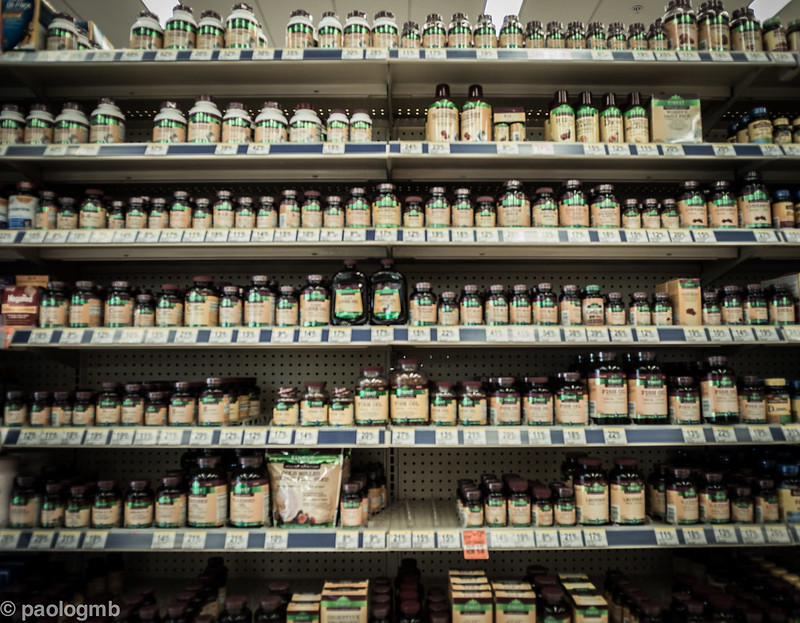I spent an hour and a half at the pharmacy the other day. First, there was a “hold” on my prescription. Then the pharmacist needed to help other customers. Then the insurance needed to be applied. Then more customers needed to be helped. Then the pill bottle had to be relabeled. Then more customers, who were in a semi-orderly throng, required assistance. Then I was able to walk out.
I could have just gone home in the meantime, I suppose, but I was waiting to get medication that helps me with post-traumatic stress. If you know PTSD, you know how hard it can be to leave the house. I was worried that something would happen to me, a loud noise, some street altercation that’s occasionally typical of D.C., and that it would make me feel stuck, unable to venture out. I couldn’t afford such a possibility.
I reflected on the time, because my flexible schedule nevertheless allowed me to wait. When “twenty minutes” turned into “more twenty minutes” and then “another twenty minutes, please,” and so on, I could at least afford to stay put, even if I did want to run out. It was different from most of the other customers — shift workers, people hustling, people frustrated and upset at potential repercussions for being five minutes late somewhere.
A few of the people milling by the counter understandably got annoyed at the fact that the people behind it had to keep calling me up to the front to get more information, and so I had to explain myself. “I’m sorry, I’ve been here an hour already.” They nodded. The woman ahead of me, stuck in a similar insurance limbo and looking very sick, was pleading with someone on the phone to please pick up her child from his grandmother’s — she was not going to make it on time. I wanted to tell her that I knew exactly how she felt, but that felt too intimate for the garishly lit pharmacy with the day sliding into darkness outside.
“Poor people wait a lot,” the writer Lucia Berlin reflected once upon a time. “Welfare, unemployment lines, laundromats, phone booths, emergency rooms, jails, etc.”
We can add waiting for routine care to the list — and not just among the poor.
Mental health care should, in the Year of Our Lord 2020, be routine, but it is frequently not treated as such. “I’m a fucking restaurant hostess,” a friend of mine who’s currently between more stable jobs and dealing with depression told me recently. “Nobody cares if I kill myself.”
In her book, Trick Mirror: Reflections on Self-Delusion, the writer Jia Tolentino notes that in a hyper-consumerist society, we are encouraged to style and sell ourselves as the ultimate products. We base our value on utility. When we break — because a machine cog is defined by its inevitable uselessness — we no longer fit in.
My new counselor recently pointed out that I frequently talk about myself with an outward perspective, as opposed to an inward one. I fret about what other people think and what I look like and, while I long to be part of something greater, I seem to think I don’t exist outside of other people. I think that’s true for a lot of us when we can’t bear to be alone with ourselves. I can blame some of that on capitalism, on the internet, on past abuse, on failed relationships, of course, but at the end of the day, I am still one on one with that fear, and nobody will do the heavy lifting for me. This is what both fighting to get care and allowing myself to receive it — an important aspect of getting better, one we don’t focus on enough — has meant for me; it’s about being my own damn hero. A pretty shabby one, no cool outfit (unless you count a pair of white leather boots that cheer me up endlessly on these dark winter days), no magical powers, aside from being able to root myself at the pharmacy and hiss “you’re not going anywhere, bitch” under my breath — but hey, it’s what I’ve got.
I don’t know if I’m going to get better, and I have come to accept the uncertainty. If you can’t make peace with the flawed nature of the process we describe as “getting better” — even though therapy and other forms of mental health assistance will, once you are able to receive them, often make you feel worse before you round a corner — you can’t ever fully commit to it. It feels like a contradiction, but the world is built on those, isn’t it? Just notice how it makes you want to die while also filling you with burning, electric curiosity about what happens next.
Image credit: Paulo Gamba

